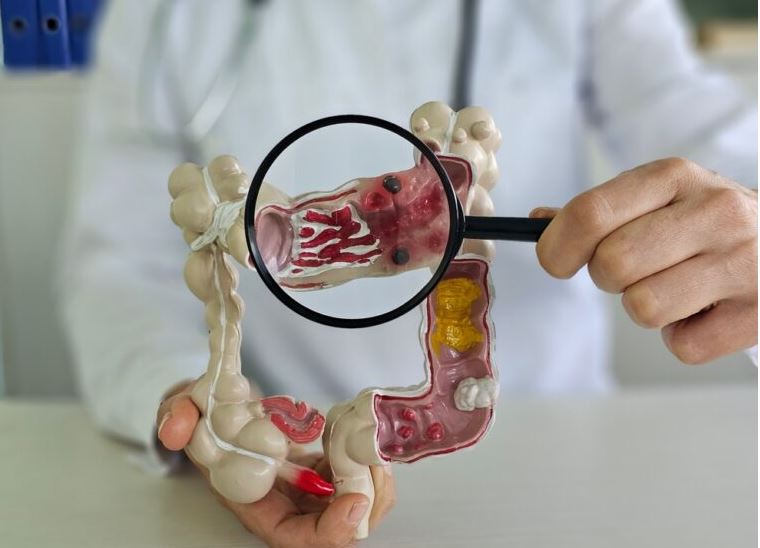A groundbreaking study has identified a potential cause behind the alarming rise in colon cancer cases among young adults: a toxin called colibactin, produced by certain strains of gut bacteria. This discovery offers new insights into early-onset colorectal cancer and underscores the importance of early detection and prevention strategies.
The Rising Incidence of Colon Cancer in Young Adults
Colon cancer, traditionally associated with older adults, is increasingly affecting individuals under 50. In the United States, diagnoses among those under 55 have doubled between 1995 and 2019. Globally, the incidence of early-onset colorectal cancer is rising by approximately 3% annually. This trend has prompted researchers to investigate underlying causes beyond known risk factors like diet, obesity, and sedentary lifestyles.

Colibactin: A Toxin Linked to DNA Damage
The recent study, published in Nature, analyzed DNA from 981 colorectal tumors across 11 countries. Researchers found that colibactin, a toxin produced by certain strains of Escherichia coli (E. coli), causes specific DNA mutations. These mutations were 3.3 times more common in patients under 40 compared to those over 70. Notably, about half of early-onset colorectal cancers in individuals under 40 carried the distinctive signature of colibactin exposure.
Early-Life Exposure: A Critical Window
The study suggests that exposure to colibactin-producing bacteria during childhood, particularly before the age of 10, may initiate DNA changes that manifest as cancer decades later. Factors contributing to early-life exposure include:
- Antibiotic Use: Early antibiotic treatments may disrupt gut microbiota, allowing harmful bacteria to establish.
- Dietary Shifts: Increased consumption of processed foods and reduced fiber intake can alter gut health.
- Birth and Feeding Practices: Higher rates of cesarean sections and reduced breastfeeding may impact initial microbial colonization.
- Childcare Environments: Early group childcare may facilitate the transmission of harmful microbes.
These factors collectively may increase the likelihood of harboring colibactin-producing bacteria during a critical developmental period.
Implications for Screening and Prevention
Understanding the role of colibactin in early-onset colon cancer opens avenues for targeted screening and prevention. Professor Ludmil Alexandrov, leading the research, emphasizes the need to identify individuals at elevated risk before disease onset. Potential strategies include:
- Microbiome Analysis: Testing for the presence of colibactin-producing bacteria in the gut.
- Early Screening: Initiating colon cancer screenings at younger ages for high-risk individuals.
- Lifestyle Interventions: Promoting diets rich in fiber and low in processed foods to support healthy gut microbiota.

These measures aim to detect and mitigate risks associated with colibactin exposure, potentially reducing the incidence of early-onset colorectal cancer.
Conclusion
The identification of colibactin as a contributing factor to the rise in colon cancer among young adults marks a significant advancement in understanding the disease’s etiology. By focusing on early-life exposures and their long-term impacts, this research highlights the importance of early detection, preventive healthcare, and further studies into the human microbiome’s role in cancer development. This research underscores the urgent need for public awareness about gut health and its lifelong impact. By fostering healthier dietary habits, supporting breastfeeding initiatives, and carefully considering antibiotic use in early childhood, we may reduce the prevalence of harmful bacteria like E. coli and, in turn, lower future cancer risks in younger generations.

















